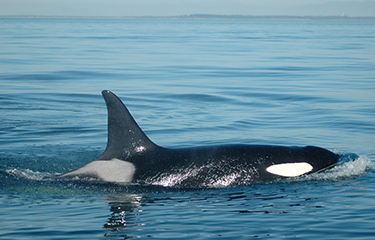Two environmental groups filed a lawsuit in U.S. District Court in Seattle, Washington, earlier this week asking federal officials to reconsider a 2009 decision that determined commercial and recreational fisheries do not jeopardize the Pacific Northwest’s critically endangered orcas, according to an Associated Press report.
Federal officials from the Pacific Fishery Management Council have already indicated that they may restrict West Coast salmon fisheries, but the two groups, The Center for Biological Diversity and the Wild Fish Conservancy, still filed suit. The council, which sets salmon harvests off the West Coast, reports that more than 300,000 Chinook salmon, orcas’ preferred prey, were caught last year.
Attorney Julie Teel Simmonds, who represents the Center for Biological Diversity, said that the lawsuit is meant to compel federal officials to move with urgency given the orcas’ plight, and to take stopgap measures to provide the whales with their favorite food.
“We have got to figure out how to get them more salmon,” Simmonds said. “Since 2009, it’s become much more crystallized just how critical prey availability is to their reproductive success and survival.”
The population of southern resident killer whales, which spend their summers between Washington state and Canada, has decreased since 2009 by 12 – from 87 orcas to 75. A calf born last year was the first to survive in almost five years.
Pacific Fishery Management Council Spokesman Michael Milstein said that the council is reviewing the lawsuit.
“Since the southern residents are endangered, the Endangered Species Act requires us to consider the impacts of fisheries on the whales, and we just recently underscored how we’re doing that in a letter to the Pacific Fisheries Management Council,” Milstein wrote. “We are reviewing all the relevant fisheries in the same light.”
Simmonds called this response a “great sign,” but indicated that the groups will still be moving forward with the lawsuit.







